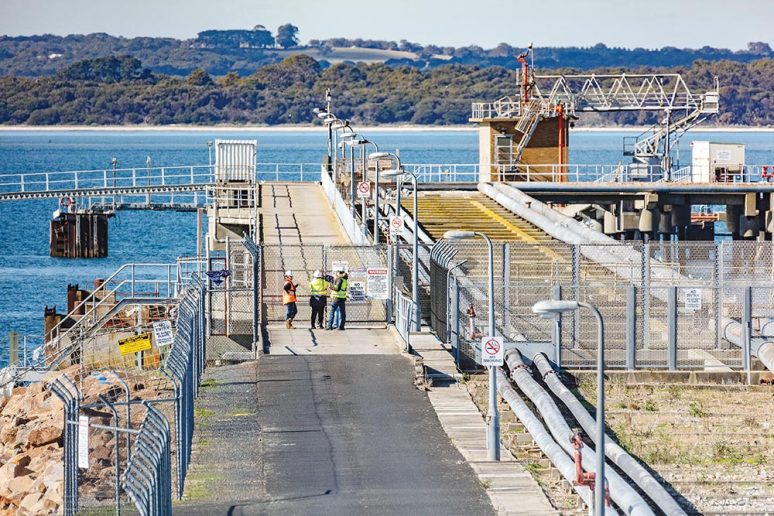Planning Minister Richard Wynne says power company AGL’s plan to import liquefied natural gas through Crib Point will be subject to “the strongest environmental assessment process in the state”.
The Save Westernport group opposing AGL’s floating gas terminal saw Mr Wynne’s announcement last week as “a huge win”.
“It’s the deferral to EES [environmental effects statement] we’ve been waiting for. The study will start in January and take nine to 12 months to complete,” the group’s website proclaimed. “It’s just the first step, but thanks to your hard work spreading the word and contacting your government representatives we are seeing real results.”
The group says the floating gas terminal is potentially dangerous and too close to residential areas and will harm the marine environment.
Mr Wynne said an EES was also required for a high pressure gas pipeline from Crib Point to Pakenham to be constructed by APA Transmission.
AGL wants to moor a 300 metre long floating storage regasification unit (FSRU) at Crib Point to turn imported liquefied natural gas into gas which would then be piped to join the state’s transmission system at Pakenham.
The proposal must also be reviewed under the guidelines of the federal Environment Protection and Biodiversity Conservation Act 1999.
While not immediately opposing AGL’s plan, federal MP for Flinders (and health minister) Greg Hunt stated in June that “I have long argued that South Port is not the place for industrial development and my view hasn’t changed in a decade. This applies to all such proposals”.
“Crib Point has become a residential community over the last few decades and it has long been my view that it should not be reindustrialised. It is up to the Andrews government to explain why it wants to reindustrialise Crib Point (“Contracts ‘advance’ AGL’s gas plan” The News 13/6/18).”
Mr Hunt’s Liberal state colleague, MP for Hastings Neale Burgess, said at the time that he had consistently backed the Crib Point community’s fight against industrial development and opposed any industry south of Hastings.
“It’s time the wishes of Crib Point residents came first,” Mr Burgess said.
In its submission to the federal government AGL says under its 20-year plan, it would lease an FSRU which would be “visited” by gas carrier vessels 12 to 40 times a year.
AGL’s referral to the federal government was made on 10 October, giving the public just 10 business days in which to comment.
A news release from Mr Wynne’s office said the EES “will investigate the potential environmental, community and cultural impacts of the project including impacts on native vegetation, wildlife, marine life and Aboriginal cultural heritage”.
The government would establish a technical reference group and “draft scoping requirements” for public comment.
“While the EES will deliver an assessment of the project’s environmental effects, the final proposal will still need to comply with a range of regulatory approvals, including legislative requirements under the Environment Protection Act 1970, Pipeline Act 2005 and Aboriginal Heritage Act 2006,” the statement continued.
The news release said Mr Wynne could be quoted as saying: “We owe it to the community and the environment to get this right and ensure this proposal is rigorously analysed by the most thorough environmental and cultural assessment tool available in the state.
“While this project has great potential, it’s critical we assess its impacts thoroughly, to protect the community and the environment.”
Dale Stohr, of Save Westernport, said EES “must ensure that this huge gas project at Crib Point on Western Port will be closely examined and all environmental and safety impacts are identified”.
“Western Port is a unique environment as a Ramsar wetland of international importance located in the UNESCO-designated Mornington Peninsula.
“Save Westernport opposes the AGL gas import project and will continue our campaign to protect the Western Port environment for the benefit and enjoyment of all residents and visitors.”




